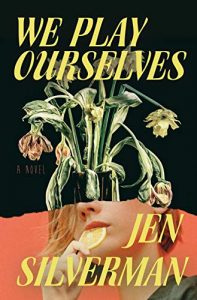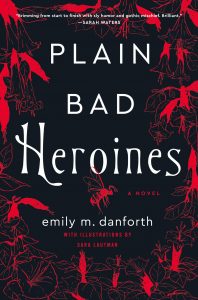Jen Silverman’s debut, We Play Ourselves, satirizes the contemporary art scene through the eyes of Cass, an embittered former drama wunderkind turned hapless millennial, as she uncovers the secrets behind an up-and-coming feminist documentary. However, behind that beautiful cover and biting wit, We Play Ourselves fails to balance criticism and nuance, and falls prey to the very structures that it pokes fun at.
After being #cancelled in the fray of a viral scandal and Off-Broadway flop, 30-something playwright Cass retreats to the sleepy suburbs of LA to stay with her friend and his on-the-rocks boyfriend. After a listless lull at the house, Cass is approached by a prominent filmmaker, Caroline, whose new project, a subversive, feminist Fight Club starring a feral pack of teenage girls, draws Cass in. After meeting the cast and starting the project, Cass begins to recognize that Caroline’s draw towards these girls crosses the line between muse and manipulator, and must reckon with her place at the heart of an exploitative art piece.
Silverman is an incredibly talented author, whose word choice is always sharp and necessary, and whose sentences string together in poignant prose. She brilliantly constructs the mindset of someone trying to rebuild themselves once they’re stripped to their most vulnerable state. Cass is an unlikable narrator: she’s catty, unempathetic and pretentious. However, your eyes are glued to her every move, and hungry for her backstory. I also found Silverman’s comparison of the limitations of artistic mediums incredibly interesting: theatre is a completely different animal than film, as this juxtaposition is made clear by the alternative perspectives in New York and Los Angeles.
We Play Ourselves takes major media buzzwords, and cultural revolutions, such as the MeToo Movement, conversations of media inclusion and representation and cancel culture, and breaks them down to their core through her sardonic wit. However, this satire can be read as tokenizing or dismissive to real life issues. For example, Cass’s nemesis, Tara-Jean Slater, is a self-proclaimed “turned asexual” after being assaulted by her uncle as a child, who then channels her trauma in a best-selling play and up-coming Netflix show, starring Cate Blanchett and Morgan Freeman as different iterations of her uncle. It’s quite obvious that Silverman is poking fun of the use of big celebrity names to sell products, but it instead comes across as acephobic and ignorant of the real trauma and mental health issues faced by CSA survivors, as Cass is “jealous” of Tara’s “selling point” as a CSA survivor.
This facetiousness is present throught the novel: Silverman pokes fun at tokenism by criticizing Caroline’s “diverse” film with only two non-white leads, but is guilty of the same crime, as no other non-white characters are present in the narrative. Caroline also fetishizes queer women, as she forces BB, the lesbian teenage girl, to fake a coming out to Cass, the only queer person on the film set, in order to garner attention from LGBT movie audiences. However, BB and Cass’s relationship is awkward and forced, contrived by BB’s crush on Cass, and the uncomfortable age gap between the two characters. The film storyline is extremely fraught with these problematic elements, and does little to reckon with them: I much preferred the New York theatre scenes to the Los Angeles film scenes, and would have preferred a narrative without the film aspect. We Play Ourselves is a narrative journey through the lens of a disillusioned young adult in the pretentious art scene, but does little to critique the issues at its core.
Thank you to NetGalley and the publisher for an advance copy
Warnings: homophobia, substance abuse, cheating, violence, racism, sexual assault, child abuse, disordered eating



